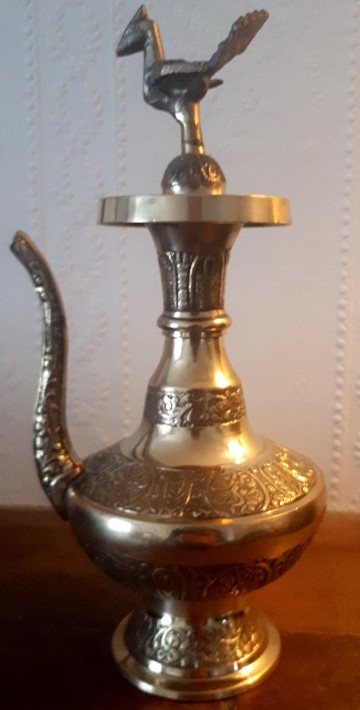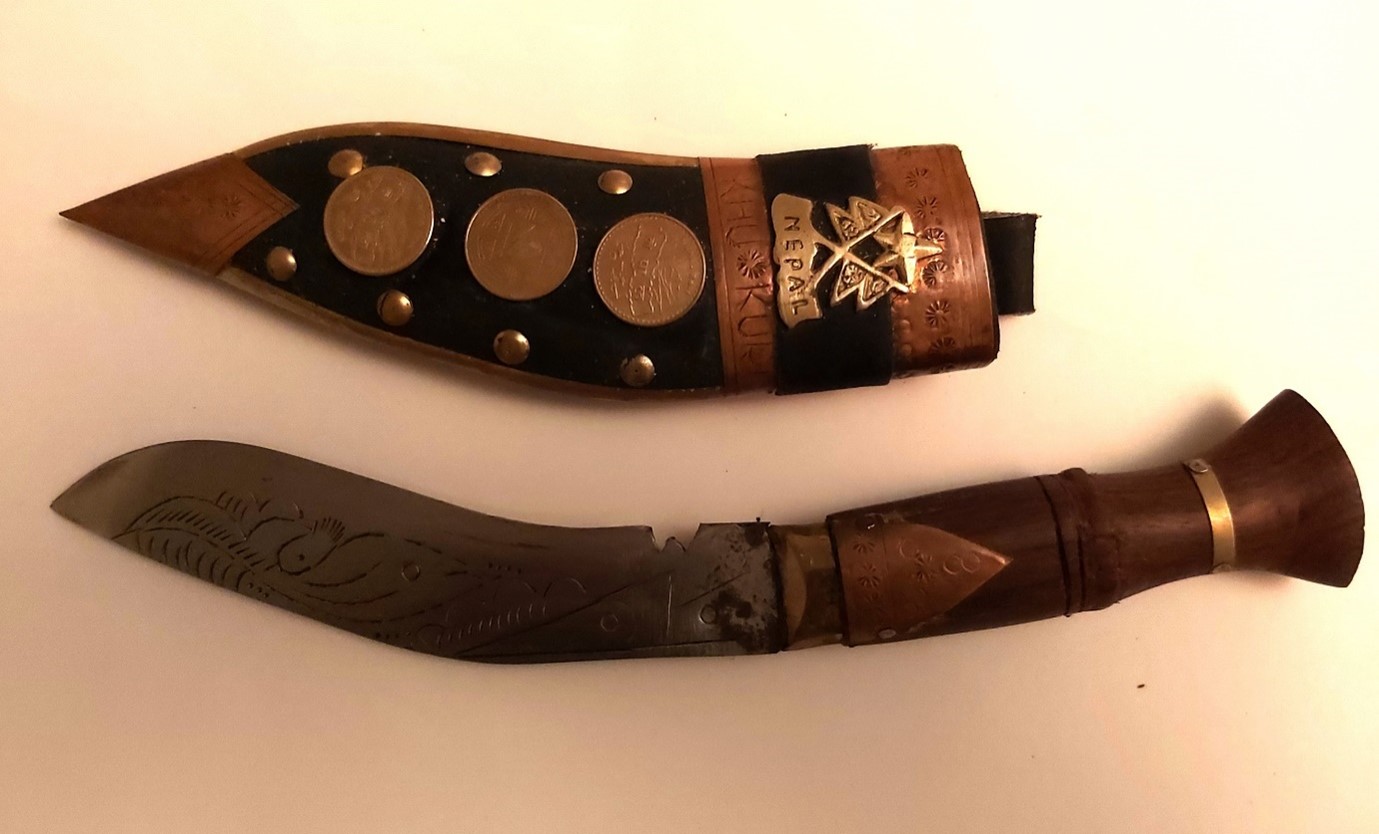
As anyone familiar with Nepal will be aware, the country has exceptional level skill, evidenced for many hundreds of years and longer in terms of religious-devotional paintings displayed in temples, monasteries, homes, and also in sculpture, architecture, woodwork and metalwork – it is reputed that Nepal in fact has had a major little-known but real influence where pagoda and temple architecture is concerned, and in the country’s history. The most celebrated international major level instance of this coming in China’s Yuan Dynasty (Kublai Khan) under Nepal’s Malla Monarchy, in the master craftsman Aneko / Araniko — https://en.wikipedia.org/wiki/Araniko
The UK Nepali community of course cannot, to date deploy building level artisanship, but in minor items such as cooking wear, copperware or brass utensils and sometimes cutlery, they certainly are in evidence in most UK Nepali homes; Thanka paintings can feature, as well sometimes as items such as ceremonial drink dispensers (Anti) – featured to the left, and a presentation gift to the UKNFS from H.E. Dr Durga Bahadur Subedi at the Embassy of Nepal.

The fabled ‘Khukuri’ / Kukri – Gurkha knife (for household/functional as well as military service, Brigade of Gurkhas, British Army contexts use, is perhaps the most famous of all Nepali artisan objects: https://en.wikipedia.org/wiki/Kukri The example below is from a civilian, non-Gurkha member of our Dorset Nepali community, for dress use on for example Nepali dance performance occasions, and smaller and less angular than the Gurkha military use Khukuri.
On discussing the creation of the Khukuri on multiple occasions with community members from Canterbury, Ashford, Folkestone, to Aldershot, Dorset, and SE and West London, all shared about how Nepali divinities (Hindustani-Nepali, Sherpa-Tibetan) are associated with creativity, including metalwork and blades, as well as all aspects of temporal/daily-non-religious, and religious-sacred activities and living. The presiding deity/god of all of artisans & craftsmanship in Nepal and in India, Vishwakarma (attributed as the divine Architect of the whole universe: he built the City of Lanka of the demon god Ravana, and Dwarika, the city where the Lord Krishna lived), and traditionally, and still largely today in 2020 there is a specific Caste – the Kami Caste (https://en.wikipedia.org/wiki/Kami_(caste)) — associated with the artisans who create Khukuris’ / kukris’.
